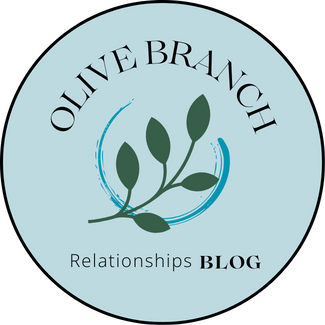Jennifer didn’t even realize she was upset at first.
She just felt off. Quiet. Tight in her chest. Like something small had gone wrong—but she couldn’t name what, or why it stuck with her.
It started when her partner mentioned possibly skipping their Friday night plans because of work. It wasn’t said harshly—just casually, in passing. She smiled and said, “No worries,” like it was fine.
But it didn’t feel fine.
Hours later, the tension was still sitting in her body—swirling, unspoken.
“Maybe I’m being too sensitive,” she told herself. “I should just let it go.”
But it wouldn’t go. It stayed, echoing. And underneath it was something even louder: Fear. Fear of starting a fight. Fear of being misunderstood. Fear of being too much—or needing too much.
Why We Stay Silent When Something Hurts
Many of us were never taught how to share emotions—especially ones that could lead to conflict. We fear:
Making our partner upset
Being dismissed or told we’re overreacting
Seeming needy, dramatic, or too emotional
Getting it wrong or making it worse
So instead, we hold it in. We shut down. We talk ourselves out of what we’re feeling.
But pushing your emotions aside doesn’t make them go away. It just buries them under layers of anxiety, distance, and self-doubt.
The Real Need Isn’t Always the Loudest One
In EFT, we look at what’s happening beneath the reaction.
The issue isn’t always about what was said—it’s about what it triggered:
A fear of being invisible.
A longing to feel valued.
A wound from the past that still aches.
When Jennifer tuned in, she realized it wasn’t just the comment at dinner. It was what it meant to her:
“You don’t really see me.”
“You don’t value how hard I try.”
“Maybe I don’t matter as much as I thought.”
Those were the deeper hurts. And with them came the desire to protect herself—to pull back, stay quiet, stay “safe.”
The Tool: Name It, Feel It, Share It
We practiced slowing the moment down:
Name the feeling — “I’m upset. Not angry, really—hurt.”
Get curious about the meaning — “This brings up something old. That fear of being brushed off.”
Find the need — “I want to know my feelings matter to you.”
Then we practiced saying it in a new way:
“When I heard you say the other night that you didn’t want to go to our datenight because you had to work, I felt kind of brushed aside. I haven’t said anything because I didn’t want to seem needy… but underneath that, I think I just wanted to feel like I mattered to you.”
No blame. No defense. Just vulnerable truth.
What About My Partner’s Needs?
Speaking up doesn’t mean demanding. It doesn’t mean asking your partner to fix you or meet your every need.
Being in a relationship means there’s space for both of you.
Sometimes your needs will come first. Sometimes theirs will. It’s a dance—a give and take that works best when rooted in honesty, not avoidance.
What matters most is that both of you feel safe enough to be real.
If You’re Hesitating to Share What You Feel…
Please know this:
Wanting to feel seen is not weakness.
Naming your hurt is not drama.
Having needs doesn’t make you too much.
You’re allowed to speak your truth without losing connection. And the right partner won’t always get it perfect—but they’ll want to understand.
May this be a small olive branch of hope for wherever you are.
Warmly,
Susan
 Susan Liddy, MAMFT
Susan Liddy, MAMFT
Cornerstone Family Services
Roswell, Georgia
🌿 Struggling to Say What You Feel Without Starting a Fight?
If you find yourself staying quiet to keep the peace—even when something really matters—you’re not alone. It takes courage to speak up, especially when your heart is involved.
I offer complimentary consultations to explore whether therapy could support you in finding your voice, clarifying your needs, and building connection without conflict.
Let’s talk. Sessions are available in-person in Roswell, GA or virtually across Georgia. (My fees, should we choose to work together, range from $125–$135 per session.)


